-
Turkey will not agree to U.S. support for Kurds fighting ISIS in Syria: Erdogan
Turkish president Recep Tayyip Erdogan said yesterday (Sunday) that Turkey would not agree to any U.S. arms transfers to Kurdish fighters who are fighting Islamic State (ISIS) militants in Syria. ISIS increased its pressure on the Kurdish city of Kobani, just inside Syria across the Turkish border, but Turkey views the PYD, the main Syrian Kurdish group defending Kobani, as an extension of the PKK, a pro-Kurdish independence group which, in 1984, had launched an insurgency campaign against the Turkish state – a campaign which, until it officially ended in 2012, had cost the lives of about 42,000 Turks
-
-
Egypt’s military involvement in the anti-Islamist campaign in Libya deepens
Two days ago, on Wednesday, Egypt has escalated its involvement in the battle against Libyan Islamists, as Egyptian warplanes conducted a series of attacks on Islamist militias’ positions in the eastern city of Benghazi. In late August, Egyptian and UAE warplanes attacked Islamist positions in and around Tripoli. Egypt’s growing direct military involvement in Libya has turned that country into yet another theater of a proxy war for broader regional battles, with Qatar and Turkey supporting the extremist Islamist militias while Egypt, Saudi Arabia, and the United Arab Emirates backing the militias’ opponents. The growing Egyptian involvement is an indication that after two years of introspection and confusion, the moderate forces in the Arab world have begun to assert themselves in an effort to gain a measure of control over post-Arab Spring developments in the region.
-
-
Boko Haram poses a serious challenge to the Nigerian government
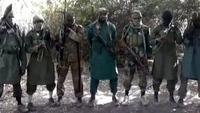
The sophistication of Boko Haram’s operations including the prison break, use of propaganda, and the bombing of key government buildings has led some analysts to suggest that the group might be gaining help from al-Qaeda in the Islamic Maghreb, al-Qaeda in the Arabian Peninsula, or Somalia’s al-Shabaab; the Nigerian government, however, has yet to show any evidence of a connection between Boko Haram and other terrorist groups outside the country. Some Nigerian officials have already admitted that Boko Haram cannot be defeated on the battlefield. “Boko Haram (is) better armed and better motivated than our own troops,” Borno state governor Kashim Shettima said in February 2014. “Given the present state of affairs, it is absolutely impossible for us to defeat Boko Haram.”
-
-
Turkish jets bomb Kurdish positions
The tensions and acrimony between Turkey and the U.S.-led coalition fighting ISIS have risen to new heights in the last two days. No other country in the region bears as much responsibility as Turkey does for the rise and continuous success of ISIS, and on Monday, Turkey went a step farther in its effort to protect ISIS: Its air force conducted heavy bombing raids against targets of the Kurdish group PKK, one of the more capable Kurdish forces fighting to hold off ISIS and its advances. We should not assume that Turkey’s leaders, pious Muslims though they are, actually espouse or support the extremist version of Islam for which ISIS stands. Rather, Turkey sees ISIS as a tool which, if properly protected, and provided it does not get out of hand, can be used to harass, weaken, or even defeat Turkey’s main adversaries in the region. Turkey’s refusal to contribute to the weakening of ISIS is now running the risk of creating a humanitarian crisis of historical proportions: ISIS forces are closing in on the Kurdish town of Kobani, just inside Syria across from the Turkish border. ISIS has publicly announced that it will kill the 200,000-300,000 Kurdish citizens in the besieged city unless they converted to ISIS version of Islam.
-
-
Minnesota law enforcement helps Somali community fight radicalization, terror recruiting
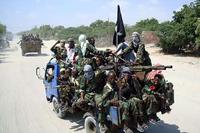
For years, Minnesota’s Somali community has been battling the recruitment of young men and women into militant groups like al-Shabaab and the Islamic State (ISIS). Several community and religious leaders have helped form youth groups and held public discussions about the radicalization of Somalis in America. Law enforcement agencies are also playing their part. Andy Luger, U.S. Attorney for the District of Minnesota, is working with members of the local Somali community to better understand its concerns and how to help the community fight extremism.
-
-
ISIS and al-Qaeda use social media, Web platforms differently to achieve different ends
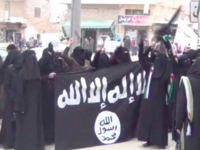
The Internet has contributed to the popularity of both al-Qaeda and the Islamic State (ISIS) among would-be jihadists, but the two terror groups use social media and Web platforms differently. Al-Qaeda has been spreading its message via the Internet for nearly two decades, while ISIS is a relative newcomer. Both groups use social media to recruit fighters, but ISIS has successfully developed content that Internet users are likely to share and repost. Such content in the form of violent videos and graphic imagery target young, disillusioned Westerners who are prime for radicalization.
-
-
More research needed to address synthetic biology security concerns
Synthetic biology involves the design of new biological components, devices, or systems that do not exist in nature, or the redesign of existing natural biological systems. Synthetic biology aims to make biological systems work more efficiently or to design biological tools for specific applications — such as developing more effective antibiotics. A new paper examines security risks and policy questions related to the growing field of synthetic biology. While the author does not think the field is ripe for exploitation by terrorists, it does highlight significant gaps in our understanding of the nuts and bolts of lab work in synthetic biology that can contribute to security risks.
-
-
Why Western boots should stay out of Iraq and Syria

The main reason why we should ignore the growing calls in the United States, Canada and Australia for Western “boots on ground” — meaning ground troops — to fight and destroy the Islamic State (IS) is this: In Iraq and Syria right now there is no alternative group that could fill the void created by a defeated IS. So even if we could topple IS, who would govern the liberated lands? One of the key lessons we learnt from the Afghanistan and Iraq wars is that military forays cannot succeed without a political solution. Attempting to create such a political solution only after the fact is not something that the world has proven adept at. In the case of IS, there is currently no clear and viable political endgame. So as hard as it might be to accept for some, if defeating IS is the goal, the best solution is likely to be isolate the militants and work to weaken them from within in Iraq – this is what the United States did so successfully in 2006 with the same Sunni groups — while adopting a realpolitik approach to the return of Bashar al-Assad in Syria.
-
-
Four arrested in London in plot to behead people on city streets

Officers from the Metropolitan Police counterterrorism unit early yesterday arrested four young men in London over a suspected terrorist plot to grab people on the streets of London and behead them. One of the four arrested was said to have links to Syria and Islamic State (ISIS). Security analysts have said that ISIS would likely seek to retaliate against the United Kingdom in response to British fighter planes joining the U.S. and Arab states in bombing raids on ISIS targets in Iraq.
-
-
Anti-terrorism plan must tackle “allies” who also fuel radicalism
The coalition of nations stitched together by the United States in response to the developing threat of Islamic State is overlooking the sources of radicalism in the region. This plan not only has nothing to say about these sponsors of terrorism but even empowers fundamentalist groups by forging alliances with them. The U.S.-led alliance includes Saudi Arabia and Qatar. Both countries have been playing counter-productive roles by supporting regional and global Salafi Jihadi movements for a long time. They persist in provoking sectarian strife throughout the region. The emergence of Islamic State cannot be understood without studying its Salafist roots in Saudi Arabia and the financial and media support that has flowed from Qatar. Fighting IS while remaining blind to the sources of radicalism in the region will ultimately be unsuccessful. The only long-term solution is to tackle the source of the problem. This plan must include clear and realistic agendas to reform the education systems of countries in the region, evaluate these U.S. allies’ democratic status, and pressure them to improve their records.
-
-
Is it fair to blame the West for trouble in the Middle East?
For at least a decade, attempts to understand why some young Muslims living in Western countries turn to violence in the name of religion have raised questions about Western foreign policy in the Middle East. Many blame the United States’ foreign policy. The Islamic State uses anger and grievance against Western intervention as a powerful recruiting tool. There is some truth to the argument that anger at foreign policy and the West’s engagement with the Arab world is at the heart of Muslim anger, as well as a driver of radicalization among Muslim youth, but the current state of affairs in the Middle East is not simply an outcome of Western intervention and the U.S.-led invasion of Iraq in 2003. Western foreign policy in the region has no doubt influenced the current situation, but the conditions for the spread of militant Islamism have come from attempts to deal with the crisis within: a crisis that is as much political in nature as it is religious.
-
-
Assad retains secret caches of chemical weapons: Israeli intelligence
Despite committing to dismantle and give up its chemical weapons – Syria was in possession of the world’s largest chemical weapons stock — President Bashar al-Assad’s regime still maintains a “residual” chemical weapons capacity, consisting of a few tons of the proscribed materials. Israel’s intelligence community has concluded that the Assad regime has decided to keep this reduced, but still formidable, chemical weapons capability, and has successfully concealed it from the inspectors of the UN chemical weapons watchdog who, a few weeks ago, have declared the chemical disarmament of Syria to be officially complete. Israeli defense officials believe that these sarin gas weapons would likely be deployed if the Assad regime faced an imminent threat to its survival. The Syrian regime is continuing to use chemical weapons which were not covered by the U.S.-Russian chemical weapons disarmament agreement, especially chlorine gas.
-
-
Cost of U.S. war on ISIS reaches $780 million
The cost of the war against the Islamic State (ISIS) Islamist group has totaled at least $780 million, according to a new estimate, as U.S. warplanes and drones continued to strike Isis positions in Iraq and Syria on Monday and Tuesday. Defense Secretary Chuck Hagel said on Friday that the U.S. military is spending up to $10 million a day and will likely request more money from Congress to fund the war. The attacks on ISIS began 8 August, and before they were expanded to include targets in Syria, the Pentagon estimated the daily war costs at $7.5 million.
-
-
Obama: U.S. intelligence underestimated ISIS strength, overestimated Iraqi military's resilience
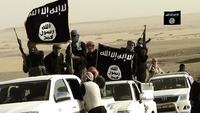
President Barack Obama on Sunday said that the U.S. intelligence community had underestimated Islamic State (ISIS) strength and level of activity inside Syria, which has become “ground zero” for jihadist terrorists worldwide, while overestimating the ability of the Iraqi army to fight such militant groups. Obama’s admission that ISIS succeeded in setting up its bases in Syria and Iraq without being noticed by U.S. intelligence may embolden Republican hawks such Senators John McCain (R-Arizona) and Lindsey Graham (R-South Carolina) who have been complaining for months that the administration was being too passive in its approach to the Syrian civil war.
-
-
ISIS, al-Nusra reconcile as Syria air strikes continue
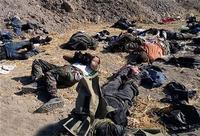
Under continuing strikes by U.S. and coalition air forces, ISIS moved toward a new alliance with Syria’s largest al-Qaeda-affiliated group. Jabhat al-Nusra, which has been at odds with ISIS for more than a year now, was also subjected to U.S. air strikes which killed scores of the group’s members. Many al-Nusra units in northern Syria now appear to have reconciled with ISIS, following months of bitter clashes between the two groups.
-
- All
- Regional
- Water
- Biometrics
- Borders/Immig
- Business
- Cybersecurity
- Detection
- Disasters
- Government
- Infrastructure
- International
- Public health
- Public Safety
- Communication interoperabillity
- Emergency services
- Emergency medical services
- Fire
- First response
- IEDs
- Law Enforcement
- Law Enforcement Technology
- Military technology
- Nonlethal weapons
- Nuclear weapons
- Personal protection equipment
- Police
- Notification /alert systems
- Situational awareness
- Weapons systems
- Sci-Tech
- Sector Reports
- Surveillance
- Transportation
Advertising & Marketing: advertise@newswirepubs.com
Editorial: editor@newswirepubs.com
General: info@newswirepubs.com
2010-2011 © News Wire Publications, LLC News Wire Publications, LLC
220 Old Country Road | Suite 200 | Mineola | New York | 11501
Permissions and Policies
Editorial: editor@newswirepubs.com
General: info@newswirepubs.com
2010-2011 © News Wire Publications, LLC News Wire Publications, LLC
220 Old Country Road | Suite 200 | Mineola | New York | 11501
Permissions and Policies
